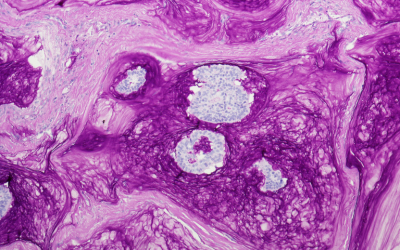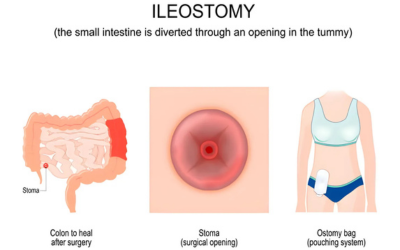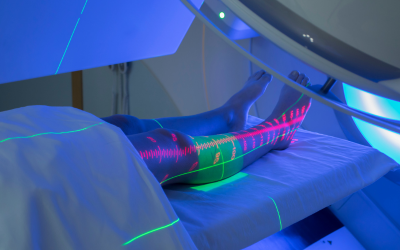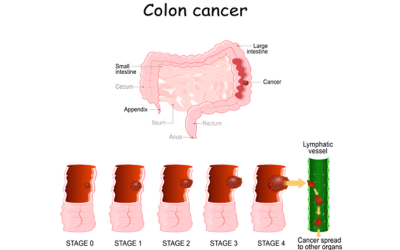
Colon Cancer Treatment in Bangalore
Colon cancer, also known as colorectal cancer, is one of the most common types of cancer globally. In India, its incidence has been rising steadily, particularly in urban areas, due to lifestyle factors such as poor diet, sedentary habits, and genetic predisposition. According to the World Health Organization (WHO), colon cancer is the third most prevalent cancer worldwide. Early detection through regular screenings can significantly improve outcomes, making it crucial to understand the importance of timely diagnosis and intervention.
At Solaris Cancer Center, we are committed to delivering the best colon cancer treatment in Bangalore, focusing on advanced diagnostic tools, cutting-edge therapies, and compassionate care. Under the leadership of Dr. Manish Kumar, our center specializes in providing personalized treatment plans tailored to each patient’s specific needs.
With extensive experience in oncology, Dr. Kumar leads a dedicated team committed to ensuring that every patient receives the most effective care. The Solaris Cancer Center is one of the most sought-after destinations for comprehensive, results-oriented colon cancer treatment in Bangalore, where patients receive holistic care from diagnosis through long-term recovery.
Now, let’s discuss the various types of lung cancer and the different treatment approaches that each one necessitates.
What is Colon Cancer?
Colon cancer is a malignancy that develops in the colon (large intestine) or rectum. It usually begins with the formation of polyps that may become cancerous over time. Early-stage colon cancer often shows no symptoms, which is why regular screenings are crucial. If left untreated, it can spread to other parts of the body, making treatment more complex. Colon cancer is largely preventable with regular screenings and lifestyle adjustments.
Stages of Colon Cancer
Stage 0 (Carcinoma in Situ)
- Stage 0: Cancer is confined to the innermost layer of the colon’s lining (mucosa), with no spread beyond that.
Stage I (Localized Cancer)
- Stage IA: Cancer has grown into the submucosa or muscle layers but hasn’t spread to nearby lymph nodes or distant areas.
- Stage IB: Cancer has invaded the outer layers of the colon wall but is still confined to the colon.
Stage II (Advanced Localized Cancer)
- Stage IIA: Cancer has spread through the colon wall but has not reached the nearby lymph nodes.
- Stage IIB: Cancer has grown into nearby tissues or organs but not yet spread to the lymph nodes.
- Stage IIC: Cancer has spread to nearby tissues, but no lymph node involvement.
Stage III (Regional Spread)
- Stage IIIA: Cancer has spread to 1–3 nearby lymph nodes but not to distant organs.
- Stage IIIB: Cancer has spread through the colon wall and to 4–6 nearby lymph nodes.
- Stage IIIC: Cancer has spread to 7 or more nearby lymph nodes but not to distant organs.
Stage IV (Metastatic Cancer)
- Spread to distant organs outside colon
Each stage requires a different treatment approach, which is carefully tailored at Solaris Cancer Center.
Types of Colon Cancer Treated at Solaris Cancer Center
At Solaris Cancer Center, we provide treatment for multiple kinds of colon cancer, each to be treated in a customized manner. Some common types are:

Adenocarcinoma:
The most frequent type, accounting for more than 95% of cases. It arises in the gland cells of the rectum and colon and may develop if not diagnosed in the early stages.

Signet Ring Cell Carcinoma:

Mucinous Adenocarcinoma:
Colon Cancer Treatment Options Available at Solaris Cancer Center

We conduct minimally invasive colon cancer surgery in Bangalore, wherever feasible, for faster recovery. The surgery involves removing half of the colon (Hemicolectomy), depending on the site involved, and the remaining portion is joined end-to-end. At times, if needed, a colostomy is created wherein the outlet is made in the abdominal wall and covered with a colostomy bag, which can be temporary or permanent.


Targeted therapy plays a crucial role in the management of metastatic stage IV colon and rectum cancers. Cetuximab is used in tumors that are KRAS, NRAS, and BRAF wild type (these are mutations which are checked in your tumor tissue). In mutant cases, Bevacizumab can be used if the treating physician feels it is appropriate. A newer therapy called Sotorasib can be used for mutant cases.


Let’s find out the exclusive reasons that make our center the optimal destination for colon cancer treatment in Bangalore.
Why Choose Solaris Cancer Center for Colon Cancer Treatment?
Comprehensive Care:
Expert Oncology Team:
Personalized Treatment Plans:
Advanced Technology:
Compassionate Support:
Choosing Solaris Cancer Center means selecting a team dedicated to providing high-quality, compassionate care for colon cancer patients at every stage of their journey.
Frequently Asked Questions
1. Is chemotherapy necessary for all colon cancer patients?
2. Is it possible to prevent colon cancer?
3. How often should I get screened for colon cancer?
4. What are the options for advanced colon cancer treatment?
5. What can I expect during a colonoscopy screening?
6. Can colon cancer be treated without surgery?
Disclaimer: The information shared in this content is for educational purposes and not for promotional use.


